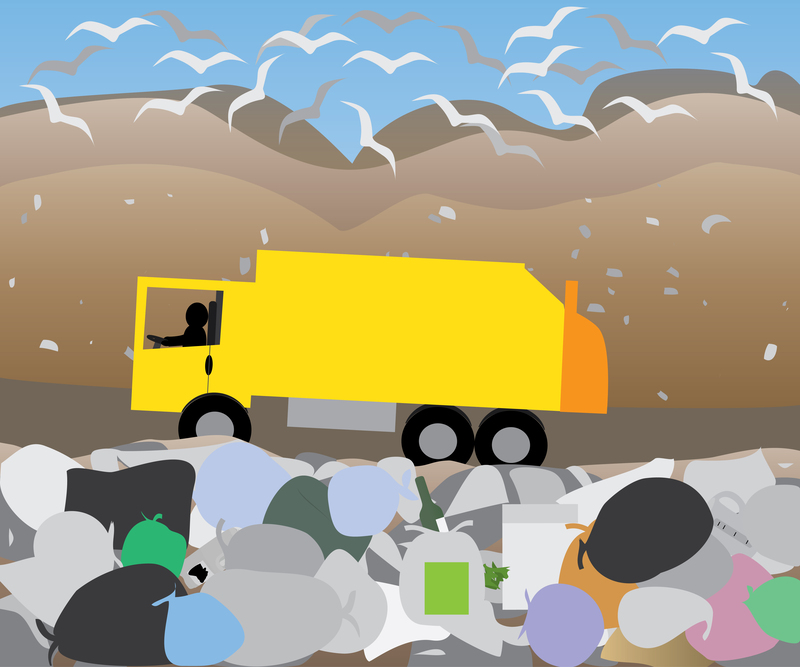The Ripple Effect of Poor Waste Disposal on Our Ecosystem
Waste disposal is an essential aspect of modern life, yet mismanagement in this area poses significant threats to the environment. From polluted oceans to uninhabitable terrestrial landscapes, the ripple effects of improper waste disposal extend far beyond immediate sight. In this article, we delve into the many ways in which poor waste disposal impacts our ecosystems, offering insights into this critical environmental issue.
The Immediate Consequences of Poor Waste Disposal
Improper waste disposal has immediate effects that disrupt the delicate balance of nature. By examining these initial impacts, we can better understand the full scope of environmental degradation resulting from waste mismanagement.
- Land Pollution: When waste is not properly disposed of, it often ends up in landfills that leach toxic chemicals into the soil. This can alter the soil chemistry, affecting the growth of plants and disrupting local ecosystems.
- Water Pollution: Mismanaged waste frequently finds its way into our water bodies, causing contamination that affects aquatic species and the plants that rely on these water resources. Industrial waste and plastics are particularly harmful.
- Air Pollution: Open burning of waste releases harmful toxins and particulate matter into the air, contributing to air pollution and posing health risks to both humans and animals.
Long-term Environmental Impacts
The long-term consequences of poor waste management are far-reaching and insidious. These effects are often harder to reverse and can perpetuate a vicious cycle of ecosystem degradation.
- Biodiversity Loss: Pollutants in the soil and water can lead to decreased biodiversity as habitats are destroyed or become inhospitable. Species that are unable to adapt may face extinction.
- Climate Change: Decomposing waste in landfills produces greenhouse gases, mainly methane, which is far more potent than carbon dioxide. This exacerbates climate change and contributes to global warming.
- Disruption of Food Chains: Toxins from waste can accumulate in the bodies of small organisms, which are then consumed by larger predators, disturbing entire food chains. This bioaccumulation can have devastating effects on wildlife populations.


A Closer Look at Ocean Pollution
When discussing the ripple effects of poor waste disposal, ocean pollution warrants special attention. The vastness of the oceans makes it challenging to monitor waste mismanagement, leading to severe environmental consequences.
Plastic Waste: One of the most alarming issues is the presence of plastic waste in our oceans. This material breaks down into microplastics that are ingested by marine life, often resulting in death or severe injury. Plastics also absorb toxins, further polluting oceanic ecosystems.
Oil Spills: Although not as frequent as other forms of pollution, oil spills are catastrophic events that devastate marine and coastal ecosystems. They significantly alter environments, impacting everything from tiny phytoplankton to large marine mammals.
The cumulative effect of these factors is a stark reminder of our responsibility to manage waste effectively, safeguarding aquatic ecosystems and the species that depend on them.
Social and Economic Consequences
Beyond environmental impacts, improper waste disposal has dire social and economic consequences. These are often overlooked but are equally significant as they affect human communities directly.
- Public Health Risks: Exposure to pollutants from waste can lead to numerous health problems, including respiratory issues, skin infections, and even cancer. Communities near dump sites are particularly vulnerable.
- Economic Burden: Managing waste pollution comes at a high cost. Governments often have to allocate significant resources to clean up polluted areas, which could otherwise be used for development projects.
- Aesthetic Degradation: Unsightly landscapes filled with litter can deter tourism, negatively impacting local economies that depend on this industry. This also reduces property values, financially straining residents.
Strategies to Mitigate the Effects of Poor Waste Disposal
To combat the ripple effects of improper waste management, several strategies can be implemented at individual, community, and governmental levels. By adopting a proactive stance, we can protect our environment and ensure healthier ecosystems for future generations.
Individual Actions
- Reduce, Reuse, Recycle: At an individual level, practicing these three R's can significantly decrease the amount of waste we generate.
- Proper Waste Segregation: Separating waste into categories like organic, recyclable, and hazardous ensures appropriate disposal, reducing environmental impact.
- Support Sustainable Products: Opting for eco-friendly products reduces the demand for harmful materials, indirectly managing waste at the source.
Community Efforts
- Community Clean-Ups: Organizing regular clean-up events can keep local areas free of litter and raise awareness about waste management among residents.
- Education Programs: Educating community members, especially the youth, about the importance of proper waste disposal can foster a culture of environmental responsibility.
Government Policies
- Strict Regulations: Implementing stringent laws regarding industrial waste disposal and enforcing penalties for violations can deter illegal dumping and pollution.
- Investment in Recycling Infrastructure: By ensuring that recycling facilities are accessible and efficient, governments can promote better waste management practices.
- Incentives for Sustainable Practices: Offering tax breaks or subsidies to companies that invest in sustainable waste management solutions can drive more businesses to adopt greener practices.
In conclusion, the ripple effects of poor waste disposal are vast and complex, affecting every facet of our environment, society, and economy. By taking collective action through informed choices and innovative policies, we can mitigate these impacts and pave the way for a cleaner, healthier world.